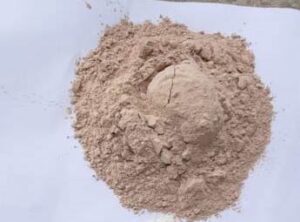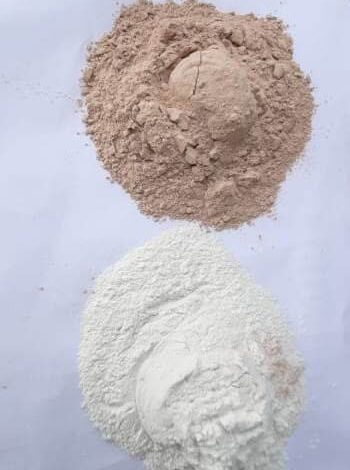A Key Ingredient for Success
Understanding the Role of Bentonite in Oil Well Drilling
Bentonite, a naturally occurring clay, plays a crucial role in the oil and gas industry, particularly in oil well drilling. With its unique properties, Bentonite is used as a drilling fluid additive to improve efficiency, stabilize wellbores, and manage downhole pressures. Its ability to swell and form a thick, gel-like consistency makes it indispensable in the drilling process.

In this article, we’ll explore the various ways Bentonite for oil well drilling enhances drilling operations and why it is a preferred material in the industry.
What Is Bentonite and Why Is It Used in Oil Well Drilling?
Bentonite is primarily composed of montmorillonite, a type of clay mineral with excellent water absorption and viscosity-building properties. When mixed with water, Bentonite forms a thick, mud-like slurry, which is perfect for use in drilling fluids (also known as drilling mud). This slurry provides several essential functions that help optimize the drilling process.
Key Benefits of Bentonite in Drilling
- Borehole stabilization: Bentonite prevents the collapse of the wellbore by coating the walls with a protective layer, ensuring structural stability.
- Controlling downhole pressure: The high viscosity of Bentonite-based muds helps control subsurface pressure, preventing blowouts and other drilling hazards.
- Cooling and lubricating the drill bit: Bentonite muds help reduce friction and heat as the drill bit penetrates the rock, protecting the equipment and extending its life.
-
How Bentonite Improves Drilling Efficiency
-
Formation of Drilling Mud
Bentonite is mixed with water and other chemicals to create drilling mud, which is then circulated through the wellbore during the drilling process. The thick mud performs several critical functions:
- Carries cuttings to the surface: As the drill bit breaks through rock formations, Bentonite-based mud lifts the cuttings (pieces of rock) to the surface, clearing the well for deeper drilling.
- Seals porous formations: When drilling through porous rock, Bentonite helps seal these formations by creating a filter cake, preventing fluid loss into surrounding rock layers.
- Hydrostatic pressure: The weight of the Bentonite mud helps balance formation pressures, which is essential to prevent the well from collapsing or fluids from entering the borehole.
Reducing Friction and Heat
Oil well drilling generates significant friction and heat, which can damage equipment and slow down operations. Bentonite muds act as a lubricant, reducing wear on the drill bit and other downhole tools. This helps maintain a smooth drilling operation and minimizes the risk of equipment failure.
Environmental and Safety Considerations of Bentonite in Drilling
Non-Toxic and Eco-Friendly
One of the main reasons Bentonite is preferred in oil well drilling is its environmental safety. It is a non-toxic, biodegradable material that poses minimal environmental risk compared to synthetic drilling fluids. Bentonite does not contaminate groundwater or surrounding ecosystems, making it a responsible choice for drilling in sensitive areas.
Handling and Disposal
While Bentonite itself is safe, proper handling and disposal of Bentonite-based drilling muds are necessary to avoid environmental impact. Companies must follow regulations regarding the treatment and disposal of drilling waste, ensuring minimal disruption to the environment.
Bentonite quarry owners drilling mud
Different Types of Bentonite for Drilling
There are different types of Bentonite available, each suited for specific drilling conditions:
- Sodium Bentonite: The most commonly used type for oil well drilling, sodium Bentonite has excellent swelling capacity and provides superior viscosity and gel strength.
- Calcium Bentonite: While less commonly used in oil well drilling, calcium Bentonite is suitable for applications where lower swelling is required.
Understanding the type of Bentonite needed for a specific drilling environment ensures optimal performance and cost-effectiveness.

